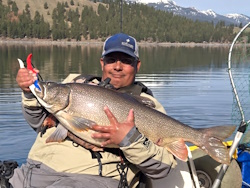|
[Today at 05:11:50 PM]
by alpalmer
[February 24, 2026, 11:20:44 AM]
by Drifter2007
[February 19, 2026, 03:44:35 PM]
by jed
[February 18, 2026, 11:10:28 AM]
by Nobaddays
[February 16, 2026, 01:50:11 PM]
by Mojo Jojo
[February 14, 2026, 09:26:02 PM]
by Zach.Dennis
[February 13, 2026, 02:54:41 PM]
by BugBoy
[February 06, 2026, 11:41:56 AM]
by rogerdodger
[January 27, 2026, 10:01:41 AM]
by elstunar
[January 22, 2026, 04:53:00 PM]
by Drifter2007
[January 19, 2026, 10:31:33 PM]
by SD2OR
[January 19, 2026, 04:53:11 PM]
by elstunar
[January 18, 2026, 11:35:59 AM]
by jed
[January 15, 2026, 06:28:03 PM]
by rogerdodger
[January 02, 2026, 07:24:34 PM]
 Guess who's back? jed with a spring Big Mack |


 Welcome, Guest. Please
Welcome, Guest. Please  February 27, 2026, 10:47:23 PM
February 27, 2026, 10:47:23 PM